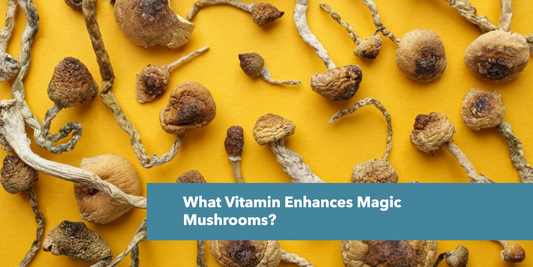Magic mushrooms, which contain psilocybin, have gained attention for their potential to reduce ADHD and improve mental health. Here’s a guide to the findings regarding their effects on ADHD.
How do magic mushrooms impact ADHD?
The potential impact of magic mushrooms (psilocybin mushrooms) on ADHD (Attention Deficit Hyperactivity Disorder) is an area of emerging research and interest. Psilocybin impacts with brain potentially influencing mood, perception, and cognition.
Is Magic Mushroom safe to use for ADHD?
The safety of psilocybin largely depends on the dosage, the environment in which it is taken, and the individual's mental health history. More research is needed to fully understand the long-term effects and to establish safe protocols for its use in ADHD.
What are the Benefits of the Magic Mushrooms on ADHD?
The benefits of magic mushrooms (psilocybin) for ADHD include better brain communication and improved focus and creativity.
Microdosing and Mindfulness:
Some studies suggest that taking small amounts of psilocybin (microdosing) may improve mindfulness in adults with ADHD. One study found that after four weeks of microdosing, participants showed improvements in their ability to focus and be present.
Improved Focus and Creativity:
Many individuals with ADHD report that using psilocybin has helped them feel more focused and creative. They often find it easier to manage their symptoms after using magic mushrooms.
Better Brain Communication:
Psilocybin may enhance communication between brain cells by acting on serotonin receptors. This could help improve cognitive functions and emotional processing, which are often challenging for people with ADHD.
Are there any studies on the use of magic mushrooms for ADHD?
Yes, there are studies exploring the use of magic mushrooms (psilocybin) for ADHD, particularly focusing on microdosing. Here are the key findings:
Micro dosing Benefits
A study published in Frontiers in Psychiatry suggests that micro dosing psychedelics, including magic mushrooms, may improve mindfulness in adults with ADHD. Participants reported enhancements in their ability to focus and be present after four weeks of micro dosing, with mindfulness scores comparable to those of the general population.
Improvement in Symptoms
Another study indicated that adults with ADHD who micro dosed reported positive effects on emotional regulation and empathy. The research highlighted that micro dosing could lead to lower ADHD symptoms and improved emotional responses.
Anecdotal Evidence
Many individuals with ADHD have shared personal experiences suggesting that psilocybin helps improve focus, creativity, and overall management of symptoms. However, these claims are largely anecdotal and require more scientific validation.
What are the potential side effects of using magic mushrooms for ADHD?
Using magic mushrooms (psilocybin) for ADHD may come with several potential side effects. Including Nausea and Vomiting, Dizziness and Confusion, Hallucinations, and bad trips.
Potential Side Effects of Magic Mushrooms for ADHD
Nausea and Vomiting: Common physical reactions that can occur after consumption.
Dizziness and Confusion: These effects can impair daily functioning and decision-making.
Hallucinations: Psilocybin can cause altered perceptions, which may not be suitable for individuals with ADHD who already struggle with focus and clarity.
Bad Trips: High doses of magic mushrooms can lead to frightening experiences known as "bad trips." These can include paranoia, fear, and a distorted sense of reality, which can be particularly distressing for individuals with ADHD.
How do magic mushrooms compare to other treatments for ADHD?
While magic mushrooms show potential as an alternative treatment for ADHD, particularly through micro dosing, they currently lack the extensive research and regulatory approval that traditional treatments have. Individuals considering psilocybin for ADHD should consult healthcare professionals to weigh the benefits and risks and explore established treatment options.




